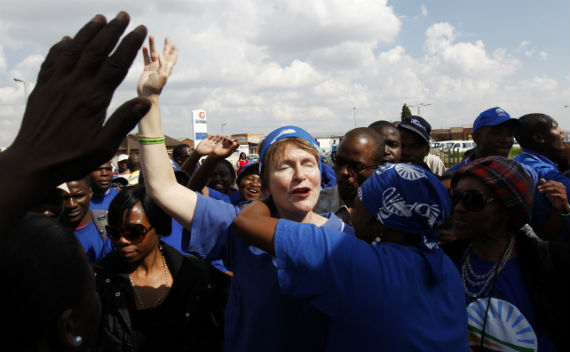More on:

Yesterday the opposition Democratic Alliance issued a press release claiming that South Africa was one of the worst affected of the G-20 economies with respect to increased unemployment. The DA’s conclusion is based on a report on employment by the ILO, which reported South Africa’s unemployment rate as 25.7 percent.
The party criticized the Zuma government for its "inability to adapt our economic policy to match the tougher times we face." It called for new job-creating strategies and promised a comprehensive jobs campaign for later in the year.
The DA is attempting to broaden its support base beyond its core constituency of ’coloureds’ (people of mixed race) and whites. However, it remains to be seen if it can position itself as a credible alternative to the governing African National Congress on unemployment.
Unemployment, even in the best of times, is very high in South Africa, especially in rural areas and in the black townships outside the big cities. In large part this reflects the economic distortions caused by a generation of apartheid, though the DA also cites government failure to “implement a wage subsidy, hasn’t moved to save textile-related jobs in Newcastle, refuses to review our labour legislation and has failed to save jobs with the training layoff scheme.”
In South Africa, unemployment disproportionately affects blacks, where gross discrepancies in wealth between racial groups continue. According to some commentators, income maldistribution is now the worst in the world, with whites continuing to be highly privileged. Especially within some of the urban townships, enduring poverty, a handmaiden of unemployment, feeds popular support for the radical Julius Malema, who has (among other things) called for the nationalization of the mines and of agricultural land.
More on: